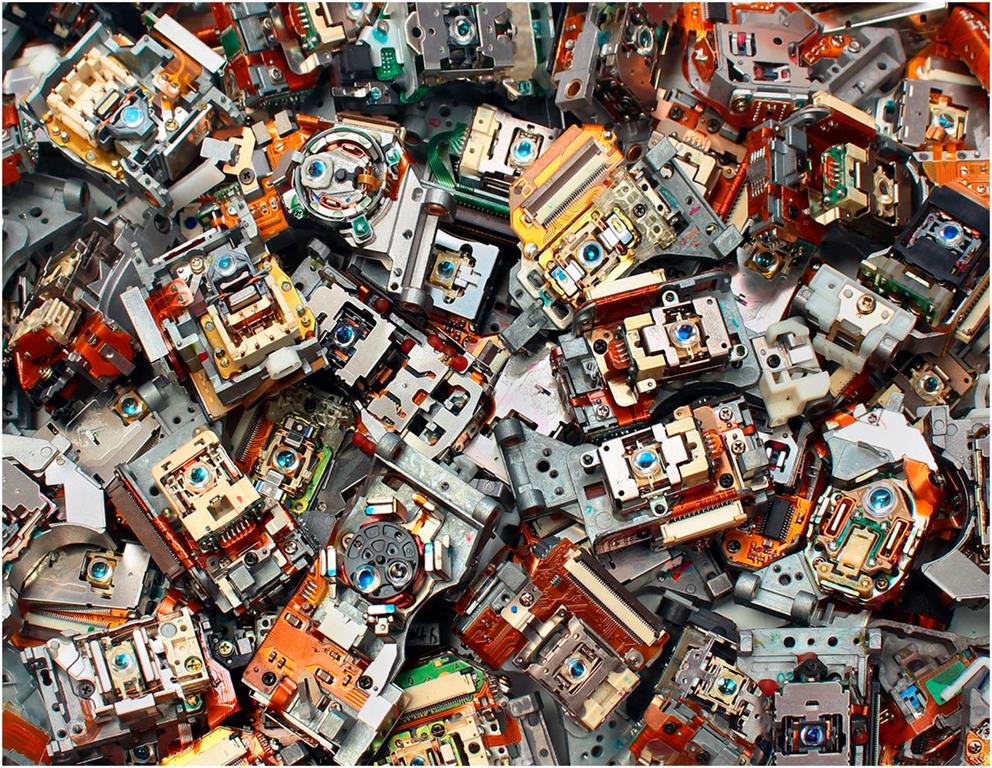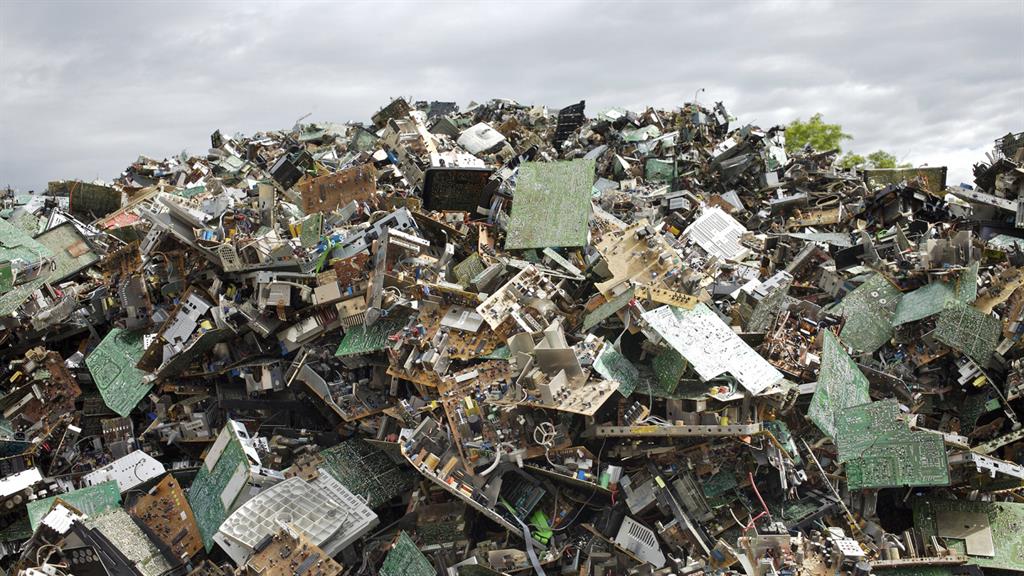NamiGreen makes strides in e-waste recycling
Increased awareness in the Namibian society and governmental focus will help solve e-waste problems.
PHILLEPUS UUSIKU
Despite 2020 being a year with Covid-19 restrictions which resulted in closure of businesses, seize operations and reduce output, Namibians have recycled more electronic waste (e-waste) than ever.
For the past three years, 2020 recorded the highest figure of e-waste recycled reaching 135 220 kg, an increase of 28226 kg when compared to 2019. The years 2019 and 2018 each recorded 10994 and 50404 kg, respectively.
The total amount of e-waste recycled last year of 135 220 is equivalent to 13 500 desktop computers not ending up in landfills.
Local recycling joint-venture NamiGreen has seen an increased interest in recycling electronic waste, as it received and recycled 26 % more e-waste compared to 2019.
According to Per Hansen, Chief Executive Officer (CEO) of NamiGreen, explains that "an increased awareness on recycling throughout Namibia, great service, availability, and professional handling of e-waste is attractive for our clients. Many citizens and organisations, private of public, literally has garages, rooms, hallways and even containers filled with old electronics, computers, and IT-equipment that they no longer use.
Essentially the equipment is just taking up valuable floor space that could be used for better purposes. That is where NamiGreen comes in handy we offer our clients a free collection service in Windhoek and Walvis Bay and depending on the amount of e-waste, we usually finish the job in a day or two".
Outlook
“Before e-waste recycling operations started in Namibia, the practice was to chuck out old electronic gadgets and devices in the bin, which essentially means landfilling the devices. The problem is, however, that majority of all electronic gadgets and devices contain hazardous materials that can cause harm to the precious Namibian eco-systems we have around us, to our human and animal health as well as pollute our drinking and fishing waters if the electronics are not recycled properly.”
Hansen adds that NamiGreen sees a growing concern for the Namibian environment amongst the citizens and organizations in Namibia. “Many people and organisations congratulate us that we are doing something for the environment, and that we also create jobs from something that would otherwise end up as trash”.
Despite 2020 being the best year in the history of e-waste recycling in Namibia, 2021 is forecasted to have a more relaxed growth. Many businesses had to close in 2020 and 2021 offers a high degree of uncertainty in terms of job creation and business start-ups. NamiGreen explains that they are seeing the impact of these challenges now but offers consolation that it is not the first time that Namibia has seen hard times, and yet still come out strong. An increased awareness in the Namibian society, governmental focus and the work of organisations like Recycle Namibia Forum all help put a focus on the e-waste problems, he said.
Despite 2020 being a year with Covid-19 restrictions which resulted in closure of businesses, seize operations and reduce output, Namibians have recycled more electronic waste (e-waste) than ever.
For the past three years, 2020 recorded the highest figure of e-waste recycled reaching 135 220 kg, an increase of 28226 kg when compared to 2019. The years 2019 and 2018 each recorded 10994 and 50404 kg, respectively.
The total amount of e-waste recycled last year of 135 220 is equivalent to 13 500 desktop computers not ending up in landfills.
Local recycling joint-venture NamiGreen has seen an increased interest in recycling electronic waste, as it received and recycled 26 % more e-waste compared to 2019.
According to Per Hansen, Chief Executive Officer (CEO) of NamiGreen, explains that "an increased awareness on recycling throughout Namibia, great service, availability, and professional handling of e-waste is attractive for our clients. Many citizens and organisations, private of public, literally has garages, rooms, hallways and even containers filled with old electronics, computers, and IT-equipment that they no longer use.
Essentially the equipment is just taking up valuable floor space that could be used for better purposes. That is where NamiGreen comes in handy we offer our clients a free collection service in Windhoek and Walvis Bay and depending on the amount of e-waste, we usually finish the job in a day or two".
Outlook
“Before e-waste recycling operations started in Namibia, the practice was to chuck out old electronic gadgets and devices in the bin, which essentially means landfilling the devices. The problem is, however, that majority of all electronic gadgets and devices contain hazardous materials that can cause harm to the precious Namibian eco-systems we have around us, to our human and animal health as well as pollute our drinking and fishing waters if the electronics are not recycled properly.”
Hansen adds that NamiGreen sees a growing concern for the Namibian environment amongst the citizens and organizations in Namibia. “Many people and organisations congratulate us that we are doing something for the environment, and that we also create jobs from something that would otherwise end up as trash”.
Despite 2020 being the best year in the history of e-waste recycling in Namibia, 2021 is forecasted to have a more relaxed growth. Many businesses had to close in 2020 and 2021 offers a high degree of uncertainty in terms of job creation and business start-ups. NamiGreen explains that they are seeing the impact of these challenges now but offers consolation that it is not the first time that Namibia has seen hard times, and yet still come out strong. An increased awareness in the Namibian society, governmental focus and the work of organisations like Recycle Namibia Forum all help put a focus on the e-waste problems, he said.






Kommentar
Allgemeine Zeitung
Zu diesem Artikel wurden keine Kommentare hinterlassen